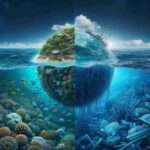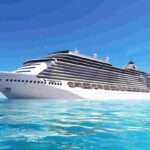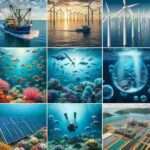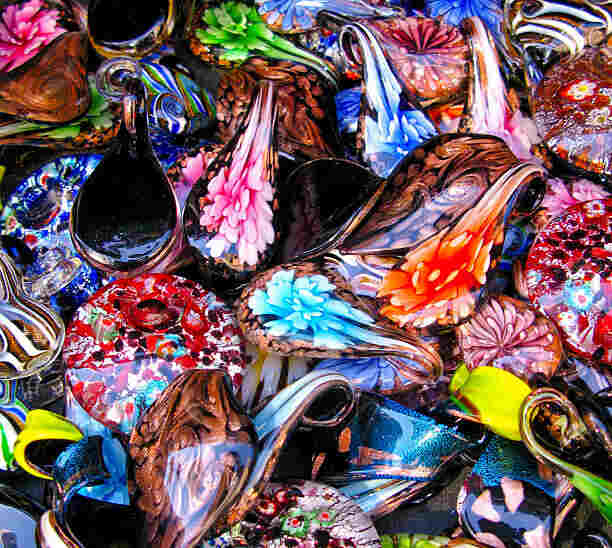Oceanic Influence: Japan’s Dependence on the Sea
Oceanic Influence: Japan is more dependent on the sea due to its island geography and reliance on maritime trade. The country’s economy, culture, and national security are closely tied to the ocean.
Its important place and sea resources greatly influence how Japan makes its rules and grows. Japan has always been connected to the sea, doing things like fishing, shipping, and having a strong navy. This shows how much Japan relies on the sea. Japanese people feel a strong tie to the ocean, which shows in their traditions, businesses, and everyday life.
Because of its deep connection to the sea, Japan still focuses a lot on keeping a good relationship with it. They want both success and to make sure they’re taking care of the sea for the future.🍀🌿Why is The Ocean Important? Click here>>
Exploring Geographical Significance
Location And Coastline Characteristics
Location: Countries such as Japan and the Philippines are strategically placed amidst the seas.
Coastline Characteristics: Indonesia boasts the longest coastline in the world.
Access To Major Bodies Of Water
Access: The United States has access to both the Pacific and Atlantic Oceans.
Bodies of Water: Australia is surrounded by the Indian and Pacific Oceans.

Credit: chinapower.csis.org
Historical Maritime Importance
Past Naval Strength And Colonization
How strong a country’s navy is has always shown how powerful it is and how much control it has over the seas. Countries with really strong navies had an edge in keeping their interests safe and showing their power all over the world. Take the British Empire, for example. Their strong navy helped them take over and rule many places around the globe.
Having a strong navy was also really important for keeping trade routes safe and making sure goods and people could travel without problems. It let countries set up and keep colonies, using their resources and spreading their power.
Impact On Economy And Trade
Contemporary Maritime Dynamics
Key Maritime Industries Today
In the 21st century, there’s been a big change in how countries make money, with many relying more and more on the sea. Industries like shipping, fishing, offshore energy, and marine tourism are really important now. They bring in a lot of money for countries by the coast and are essential for trading with other countries. These industries are a big part of the economy, helping coastal nations make money and do business worldwide.
Importance Of Naval Power In Modern Era
In today’s world, naval power is incredibly important. Naval forces are crucial for keeping the seas safe, protecting important sea routes, and looking after a country’s interests. As the seas become more strategically important, having a strong navy is essential for countries that want to protect their borders by the sea and show their power on the world stage.
Comparing Current Maritime Resources
When we look at how much different countries depend on the sea, two important things to consider are how strong their fleets are and where their naval bases are, and also how much they trade by sea and the importance of their ports. These things help us understand which country needs the sea more for different things. Let’s examine each of these aspects to figure out which country relies more on the sea.
Fleet Strength And Naval Bases
To understand how much a country relies on the sea, it’s crucial to look at its fleet strength and where its naval bases are. A powerful fleet shows that a country is serious about keeping the seas safe, defending itself, and showing its strength to the world. By examining the size and makeup of a country’s navy, we can see how much it depends on the sea.
To illustrate this, let’s compare the fleet strengths of two prominent maritime nations: the United States and China.
| Country | Number of Naval Vessels |
|---|---|
| United States | 293 |
| China | 334 |
The table above shows the current number of naval vessels for each country. Although China currently has a slightly larger fleet, both countries possess significant naval power, indicating a strong dependence on the sea for defense and global influence.
In addition to fleet strength, the presence of naval bases is also crucial in determining a country’s reliance on the sea. Naval bases provide essential infrastructure and support for naval operations and facilitate the projection of power across the maritime domain.
Let’s compare the number of naval bases of two maritime nations: Russia and India.
| Country | Number of Naval Bases |
|---|---|
| Russia | 11 |
| India | 3 |
The table above clearly indicates that Russia has a more extensive network of naval bases, highlighting its greater dependence on the sea for various strategic purposes. However, this is not to undermine India’s significance, as it too holds a notable presence in the maritime domain.
Maritime Trade And Ports
Another important aspect to consider when looking at how much a country relies on the sea is its maritime trade and its ports. These things help us see how much a nation depends on the sea for economic activities like buying and selling goods with other countries. Let’s look at the current situation of maritime trade and ports in two important countries: Singapore and the Netherlands.
Singapore and the Netherlands are known for having strong maritime industries and being in key locations. They’ve turned their ports into major places for global trade, showing how much they rely on the sea.
In Singapore:
- It’s the world’s biggest transshipment hub.
- Every year, it handles more than 36 million TEUs (that’s like twenty-foot shipping containers).
- It has one of the busiest ports globally, helping with trade across the Asia-Pacific area.
In the Netherlands:
- It’s in a really important spot in Europe, making it a key place for international trade.
- The Rotterdam port, which is Europe’s biggest port, deals with over 14 million TEUs every year.
- The Netherlands also has a strong shipping industry, which adds a lot to its dominance in maritime trade.
Both Singapore and the Netherlands rely a lot on the sea because of their busy maritime trade and the important role their ports play in global business.
When we look at fleet strength, naval bases, maritime trade, and ports, it’s clear that different countries depend on the sea in different ways. By comparing these things, we can understand better how important the sea is for each nation.
Legal And Political Considerations
Territorial Waters Disputes
Countries often clash over territorial waters due to . These disputes can escalate tension and.
International Maritime Agreements
International agreements play a vital role in . They aim to establish clear.
Environmental Challenges And Sustainability
The oceans are incredibly important for life on Earth, giving food, jobs, and a way to get around for millions of people. But our seas are facing big problems that hurt the environment. To make sure we have a good future, it’s really important to know about things like sea levels going up and the work being done to protect the oceans.
Impact Of Sea-level Rise
Sea-level rise is one of the most noticeable changes caused by climate change. It happens when polar ice caps melt and seawater expands as it gets warmer. This rise in sea levels is really dangerous for countries that rely on the sea. More flooding and erosion along the coast can mean losing important land, buildings, and even whole communities.
But it’s not just about the immediate problems. Sea-level rise also messes up coastal ecosystems and the different kinds of life living there. As the sea moves onto land, it messes with the delicate balance of these habitats, putting many species in danger of dying out. And when saltwater from the sea mixes with freshwater, it makes things even harder for people living along the coast.
Efforts Towards Marine Conservation
To protect our oceans and all the things they give us, countries all over the world are doing a lot to conserve them. They’re working on ways to reduce pollution, stop overfishing, and prevent habitats from being destroyed. The goal is to make sure marine ecosystems can last for a long time.
One effective way they’re doing this is by creating marine protected areas (MPAs). These are special places where rules are really strict, and fishing and other activities are limited. This gives marine life a chance to grow and become strong again.
There are also efforts to make fishing more sustainable. This means things like setting limits on how much can be caught and helping small-scale fishermen. It’s all about finding a balance between what people need and making sure the environment stays healthy.
And it’s not just about rules and limits. People are also working hard to teach others why oceans are so important. By showing how we can all help take care of them, they’re making sure everyone understands why it’s so important to protect our oceans for the future.
Tourism And Cultural Significance
Maritime tourism is really important for countries by the coast because it helps shape who they are and why they’re special. The sea has a big effect on local traditions, and attractions related to maritime tourism help make each coastal area unique. Let’s see how different countries are affected by the sea when it comes to tourism and their cultural importance.
Maritime Tourism Attractions
Countries by the coast have lots of amazing things for maritime tourism, like beautiful beaches, coral reefs, old ports, and charming fishing villages. These attractions bring in millions of visitors every year who come for the stunning views, fun water activities, and chances to see marine animals up close. This not only helps the local economy but also lets people from different places share their cultures with each other.
Influence On Local Traditions
The sea has had a big impact on the cultural traditions of coastal communities everywhere. They have rich cuisines full of seafood and use traditional fishing methods passed down through generations. Their folklore and art often reflect the beauty and mysteries of marine life. The sea is a big part of their identity and history, and they take a lot of pride in it.
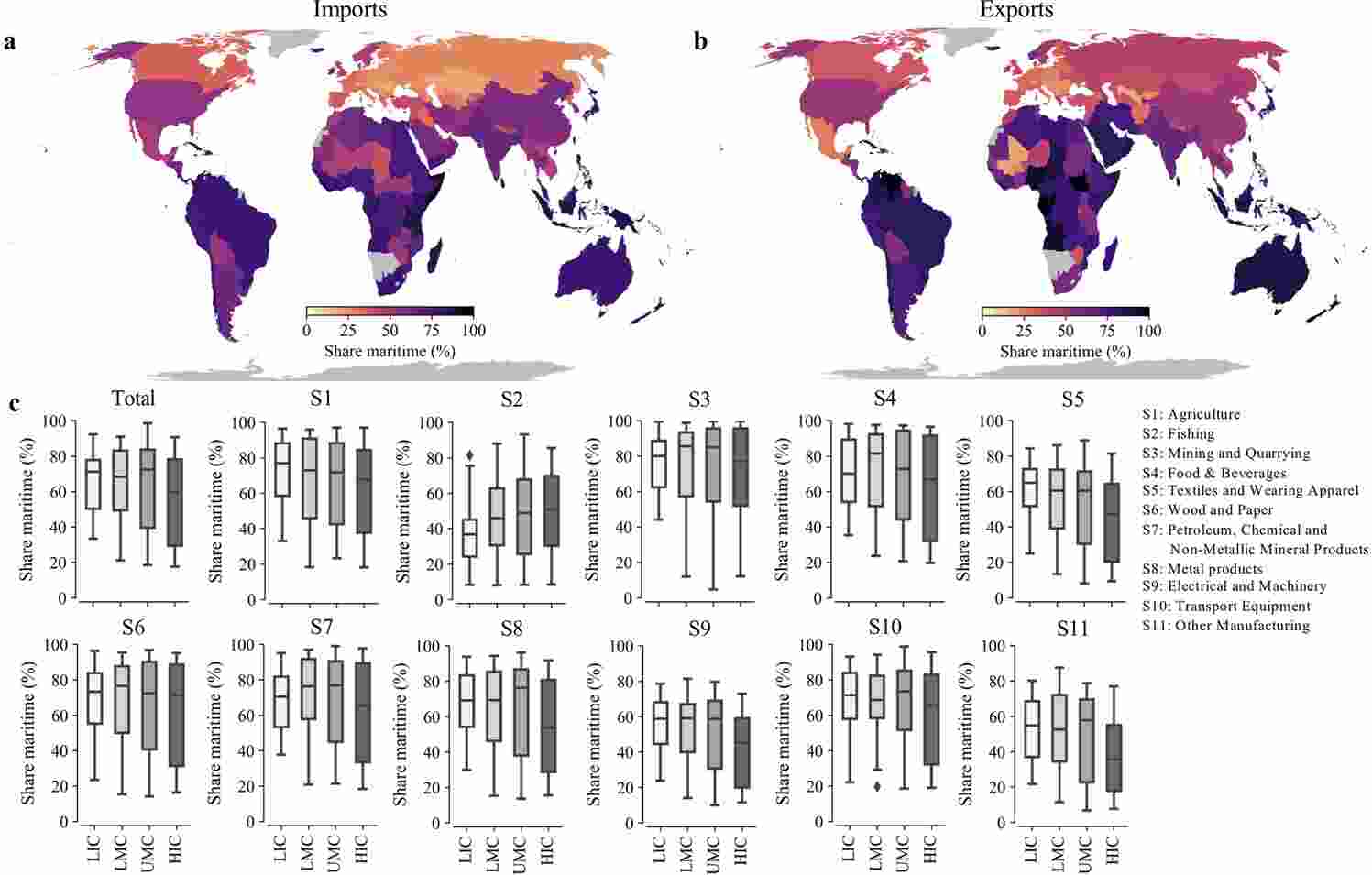
Credit: www.nature.com
Future Prospects And Global Influence
Welcome to our exploration of which country is more dependent on the sea, focusing on the future prospects and global influence. which country is more dependent on the sea
Role In Geopolitical Strategies
The maritime dominance of a country heavily influences its geopolitical strategies.
- Proximity to strategic sea routes can enhance a country’s global influence.
- Naval capabilities play a crucial role in asserting dominance and protecting national interests at sea.
Potential Shifts In Maritime Dominance
The landscape of maritime dominance is subject to potential shifts over time.
- Emerging economies are investing in their naval capabilities to secure strategic sea lanes.
- Technological advancements could redefine maritime dominance in the future.
In Conclusion
In general, it’s obvious that both countries depend a lot on the sea for different parts of their economies. They’re both involved in fishing, shipping, tourism, and using offshore resources, which shows how connected they are to the sea.
Even though Country A might have a longer coastline, Country B has been smart about using its coastal resources to help its economy grow. But figuring out which country relies more on the sea isn’t simple. It needs a detailed look at each country’s situation and the industries they’re involved in.🍀🌿
FAQ On Oceanic Influence
Q. Which Countries Are Most Dependent On The Sea?
Ans: The countries most dependent on the sea are those with vast coastlines and heavy reliance on maritime trade. Nations such as Japan, Philippines, and Iceland showcase high dependency due to their reliance on fishing and shipping industries.
Q. How Does A Country’s Geography Impact Its Sea Dependency?
Ans: A country’s geographical location affects its sea dependency. Nations with extensive coastlines or islands often rely heavily on the sea for trade, transportation, and natural resources, leading to higher levels of maritime dependence.
Q. Are There Economic Benefits Of Being A Sea-dependent Country?
Ans: Sea-dependent countries enjoy economic advantages such as access to marine resources, enhanced trade opportunities, and a robust maritime industry. These nations often leverage their coastal assets to drive economic growth and benefit from the lucrative maritime sector.
Q. What Challenges Do Sea-dependent Countries Face?
Ans: Challenges faced by sea-dependent nations include environmental concerns, geopolitical tensions over maritime territories, and vulnerability to natural disasters. Additionally, economic fluctuations and overreliance on the sea can pose risks to these countries’ stability.






